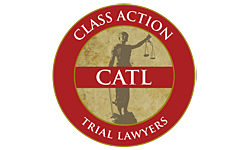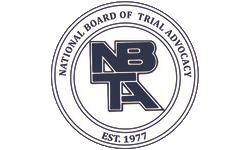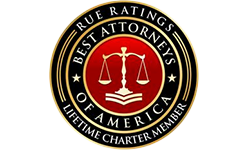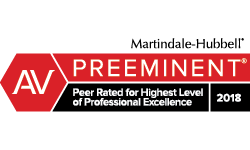Are Trucking Companies Regulated by the Federal Government?

As a division of the Department of Transportation (DOT), the Federal Motor Carrier Safety Administration (FMCSA) is “the lead federal government agency responsible for regulating and providing safety oversight of commercial motor vehicles.”
In this way, trucking companies are regulated by the federal government. However, state agencies also hold regulatory authority over motor carriers that travel through or operate within their borders.
Key Highlights:
- FMCSA regulations are supposed to help make our roads safer for everyone.
- Kentucky is responsible for licensing commercial drivers within the state.
- Violations of either federal or state regulations can result in serious accidents and injuries.
Federal Trucking Regulations
The FMCSA regulates virtually every aspect of the trucking industry, from CMV safety standards and the preservation of records to drug and alcohol testing and hours-of-service rules for drivers. Let’s review some of the regulation violations that are most frequently cited in truck accident claims.
Hours-of-Service Regulations
Being a commercial vehicle driver comes with long hours spent behind the wheel, often on stretches of roadway with little to no variety in scenery. Spending hour after hour and day after day driving can take a physical and mental toll on drivers.
Hours-of-service (HOS) regulations are intended to protect both commercial drivers and those who they share the road with. These regulations limit the amount of time spent driving, mandate breaks, and impose required days off.
Current driver HOS regulations for property-carrying drivers are as follows:
- Limit of 11 driving hours following 10 consecutive hours off duty
- May not drive past the fourteenth consecutive hour after coming on duty
- Mandatory 30-minute break following eight hours of cumulative driving
- May not drive past 60/70 hours within a single seven-/eight-day consecutive period (may be restarted following a minimum of 34 hours off duty)
Exceptions to the above regulations apply for both adverse driving conditions and short-haul trips, which may extend permitted driving hours.
Pre- and Post-Trip Inspections
Prior to operating a CMV after coming on duty, FMCSA requires that “the driver must inspect the vehicle and be satisfied that it is in safe operating condition.” The results of this pre-trip inspection must be compiled into a vehicle inspection report. If the vehicle inspection report notes any problems or deficiencies, these issues must be rectified before the driver operates it again.
Post-trip inspections should occur at the conclusion of a driver’s on-duty period, when they are done driving. The results of this inspection should be detailed in a written report that covers the CMV’s:
- Service brakes
- Parking brake
- Steering mechanism
- Tires
- Wheels and rims
- Horn
- Lights and reflectors
- Mirrors
- Windshield wipers
- Coupling devices
- Emergency equipment
A post-trip inspection report is required for each vehicle that a driver operates while on duty.
Drug and Alcohol Testing
Truck drivers are prohibited from operating CMVs while under the influence of drugs or alcohol. The FMCSA enforces mandatory drug and alcohol testing in a variety of situations to help ensure that all commercial drivers are sober while on duty.
Under current regulations, a driver may be tested for drug or alcohol use:
- During the pre-employment process
- Post-accident, when certain conditions are met
- Randomly
- When there is reasonable suspicion
- When returning to duty after a failed test
- As a follow-up requirement prescribed by a substance abuse professional (SAP)
FMCSA regulations require a five-panel drug test for the following substance classes:
- Marijuana
- Cocaine
- Opiates (including codeine and opium derivatives)
- Amphetamines and methamphetamines
- Phencyclidine (PCP)
If a driver tests positive for drugs or registers a blood alcohol concentration (BAC) of .04% or higher, they must immediately be removed from duty. Their employer must then provide them with a list of substance abuse professionals (SAPs). After selecting an SAP, the driver can begin their return-to-duty (ROD) process.
At the conclusion of the ROD process, drivers must successfully pass both drug and alcohol testing.
Preservation of Records
Motor carriers are required to maintain and preserve records for minimum retention periods. Retention periods vary based on the type of records.
Examples of records that motor carriers must preserve under FMCSA regulations include:
- Charter or certificate of incorporation and amendments
- Certificates of public convenience and necessity issued by regulating bodies
- Operating authorizations and exemptions to operate
- Service contracts
- Shipping contracts for transportation or caretakers of freight
- Contracts with employees and employee bargaining groups
- Employee records (including those related to drug and alcohol testing)
Some of the records that motor carriers are required to maintain and preserve can be used as evidence if you’ve been injured in a trucking accident and are planning to file an injury claim.
Kentucky Trucking Regulations
At the state level, Kentucky holds regulatory authority over the licensing of CMV drivers. To drive an 18-wheeler, tractor-trailer, semi-truck, or any other type of CMV, a driver must first obtain a commercial driver’s license (CDL) with all necessary endorsements.
To obtain a CDL in the state of Kentucky, you must:
- Be at least 18 years of age (or 21 if driving interstate)
- Complete all required CDL paperwork
- Be a permanent resident or U.S. citizen
- Complete the vision, skills, and written test administered by the Kentucky State Police
Additional requirements for successfully obtaining a Class A, Class B, or Class C CDL can be found on the Kentucky Transportation Cabinet’s website.
Holding Negligent Trucking Companies Accountable for Their Actions
If you’ve been injured in a truck accident, you have the right to hold the driver that hit you and their employer responsible for all the harm you’ve suffered. Everything from your medical bills and lost wages to pain and suffering and mental anguish may be compensable in a truck accident claim.
Every Lexington truck accident attorney at Golden Law Office has the knowledge, background, and expertise needed to help you navigate these types of complex legal claims. We can help you identify possible areas of negligence and liability, including any federal trucking regulations that might have been violated.
Are you ready to learn more about your legal options? Your first meeting with our Lexington law office is always free, and we’re able to take most cases on a contingency fee basis—which means you don’t owe us anything unless we win your case for you. Contact us online or by phone to schedule your free case evaluation today.
Golden Law is a local, Kentucky Law Firm, attorneys/lawyers in Fayette County, Kentucky, working in the fields of personal injury, auto accidents, car and truck wrecks; medical malpractice: doctors, hospitals & nursing homes; senior living abuse: neglect, physical abuse, emotional abuse, dehydration, bedsores, catastrophic injuries, and broken bones. If you are considering a lawsuit, call us at 859.469.5000 for a free consultation. We are located at 771 Corporate Dr. Suite 800/ Lexington, Kentucky 40503. We handle cases all over the Commonwealth of Kentucky. We have represented and trained people in major insurance companies & major trucking companies. We have first hand experience and know the ‘inside of the insurance business’ … that’s a distinction that no other law firm can make. We’re Your Advocate. Dale Golden, Laraclay Parker.











